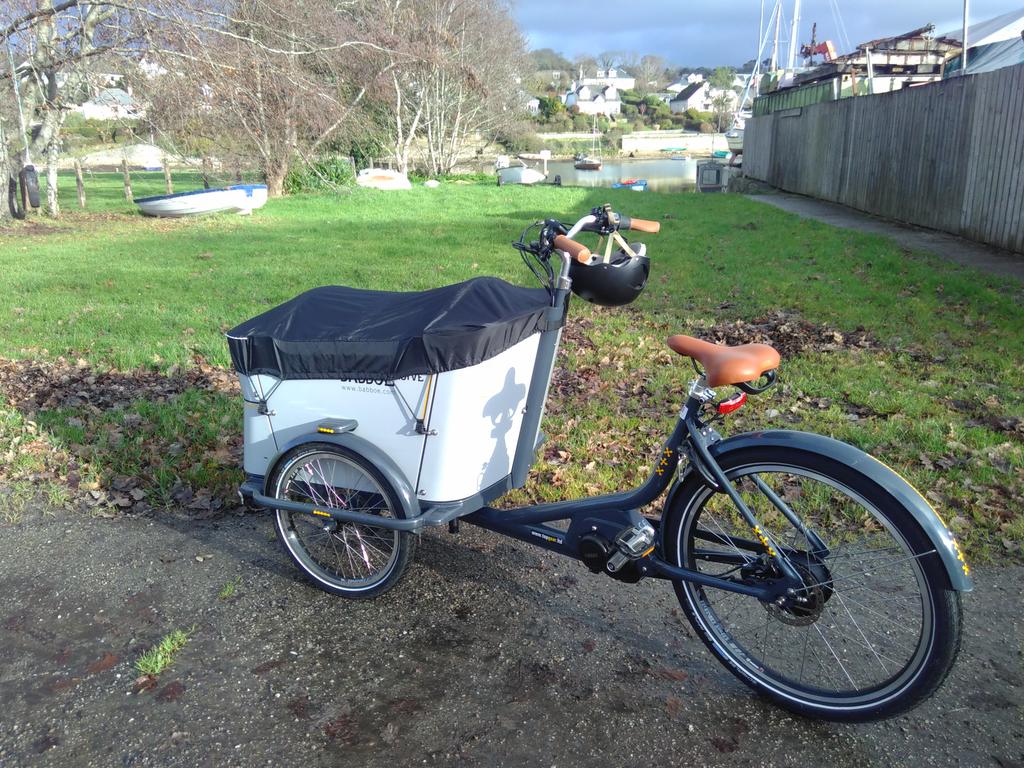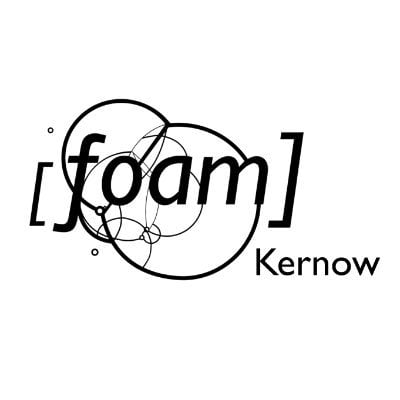Cornwall-based FoAM Kernow is a small non-profit organisation in operation since 2014. FoAM Kernow primarily works in collaboration with public funded organisations such as universities, or on commission with museums, to build bespoke software and hardware for research purposes. Its work often involves reducing inequalities to allow individuals to participate in scientific research, regardless of educational backgrounds. FoAM Kernow also teaches, runs events, and designs exhibitions, which can mean transporting equipment across Cornwall.
Background

The process
FoAM Kernow is proud of its strong organisational ethics. The directors were keen to reduce the company’s carbon footprint without impacting its ability to deliver events. They learned of Department for Transport’s eCargo Bike Grant Fund and, after a straightforward application process through Energy Saving Trust, received a grant award of £709.90 in 2019. The organisation purchased a Babboe Curve Mountain ecargo bike from a local retailer. The model has a carrying capacity of 100kg, which is plenty for transporting items to the events and exhibitions they run locally.
FoAM Kernow is based in a hilly area of Cornwall, so the ecargo bike’s electric motor helps to conquer steeper inclines while still providing the health benefits of a regular cycle. The company has been impressed by the little maintenance required, despite the ecargo bike’s frequent use, and has found that the ecargo bike needs charging two or three times per week. Now that FoAM Kernow has had time to get used to a new way of transporting equipment, the company is considering a future purchase of a lighter model with a dual battery to reduce the number of charge times needed each week.
Results
FoAM Kernow’s ecargo bike has travelled a total of 344 miles in just under one year, despite a reduction in usage during lockdown. The company has saved up to 1.09 tonnes of carbon dioxide (CO2) emissions by switching from a diesel car to ecargo bike. It charges the bike from the company’s own off grid charging system, which is comprised of a single solar panel, inverter and car battery, so the electricity is free to use.
In its rural area of Cornwall, FoAM Kernow’s ecargo bike is the talk of the town; passers-by are always interested in the bike as there are few others in the area. FoAM Kernow would like to trial some different models and is keen to see an increase in retailers of different models as awareness of ecargo bikes improves.
The company is happy to loan the cycle out to other organisations in town, in the hope that they too might decide to switch to this sustainable method of transport. This would help drive demand and availability of ecargo bikes and different electric cycles in the area.
Get in touch
To find out more about ecargo bikes, visit our advice page, or drop us an email via the button below.
Email us